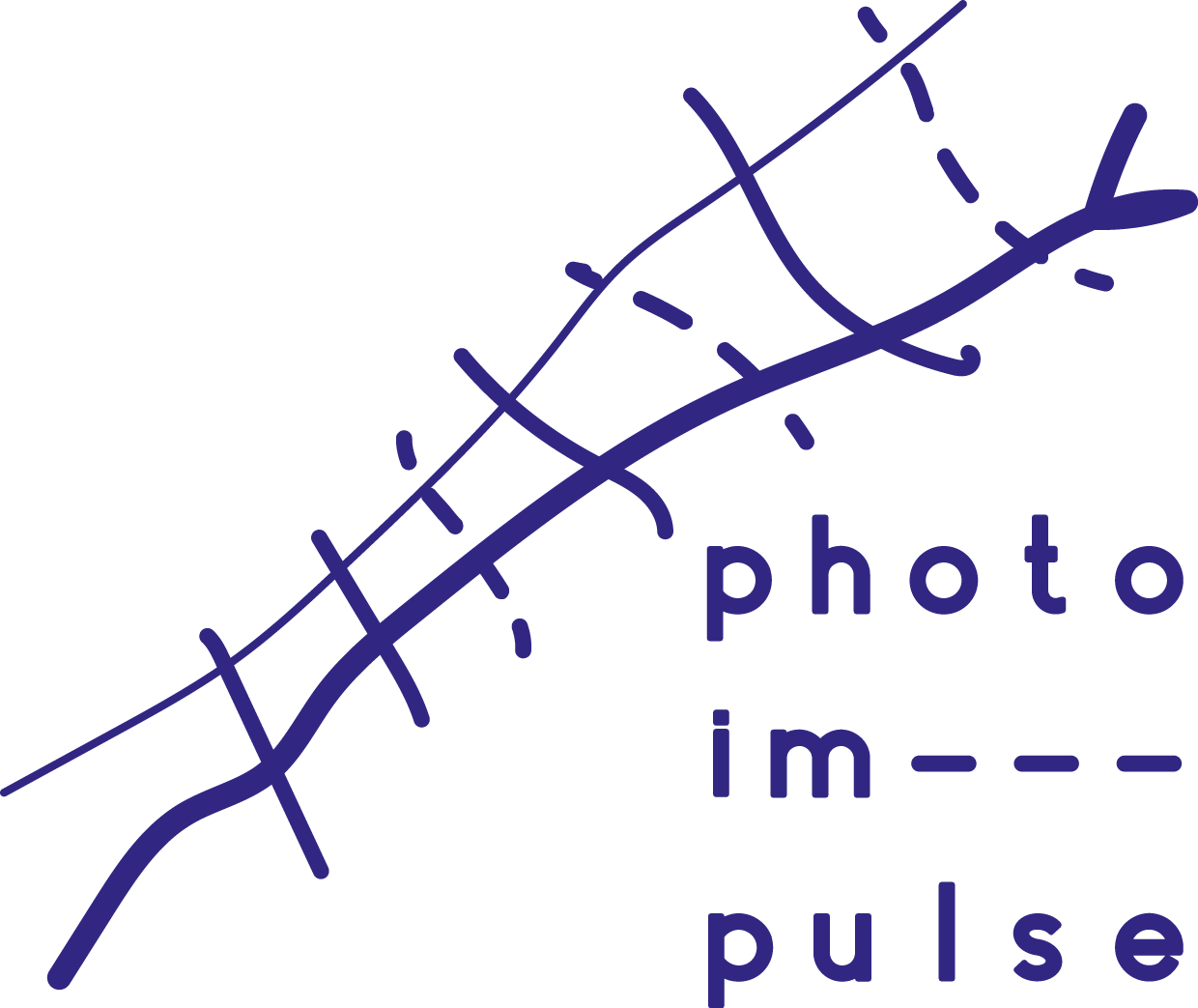Team
Researchers

Teresa Mendes FloresPrincipal Investigator
Teresa Mendes Flores is the principal investigator of the Photo Impulse project at ICNOVA where she coordinates the Culture, Mediation and Arts research group, and is a member of the board of direction. Currently she is one of the main editors of the Journal of Communication and Languages (ISSN 2183-7198). Previously funded projects in which she participated as a researcher include: Feminine Politics – Gender Politics and Strategies Oriented Towards Visibility of Women Members of Parliament (2008-2011), History of the Visual Culture of Medicine in Portugal (2010-2013), Culture at the Front Page – A Study of the Portuguese Newspapers During the First Decade of This Century (2012-2014), Stereo Visual Culture – The Visual Culture of Portuguese Stereoscopic Photography (2012-2015). For her postdoctoral degree she studied the Photography of the Portuguese Scientific Expeditions (2012-2017), she lectures in the fields of semiotics, visual media archaeology and image theory, focusing on photography and film.
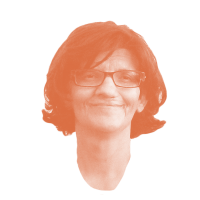
Margarida MedeirosCo-Principal Investigator
Margarida Medeiros is a researcher of ICNOVA and Professor at the School of Social Sciences and Humanities of NOVA University. She teaches in the fields of History of Photography and Visual Culture. She participated in the funded projects Visual Culture of Medicine in Portugal (2010-1013) and Stereo Visual Culture – The Portuguese Stereoscopic Photography (2012-2015). Co-editor of ICNOVA’s journal of Communication and Languages, she has also published regularly in specialized journals, is the sole author of Fotografia e Narcisismo – o auto-retrato contemporâneo (Lisboa, Assírio & Alvim, 2000); Fotografia e Verdade – Uma História de Fantasmas (Lisboa, Assírio & Alvim, 2010); A Última Imagem – fotografia de uma ficção (Lisboa, Documenta, 2012) and has recently edited the anthology of essays Fotogramas – ensaios sobre Fotografia (Lisboa, Documenta, 2016). She is a photography critic and curator, being responsible for the following recent exhibitions: Augusto Bobone, Fotoradiografias – 1896 (Fundação EDP / Lisbon, 2014), 19th Century Portuguese Photography Treasures (in collaboration with Emília Tavares (MNAC / Lisbon, 2015)), Andar nas Nuvens – duas propostas para um diálogo entre a terra e os céus (Fundação Medeiros e Almeida / Lisboa, 2016 and Fundação Abel Salazar / São Mamede do Infesta, 2017), Fotografia e Viagem (Museu Photographia Vicentes / Funchal, 2019).
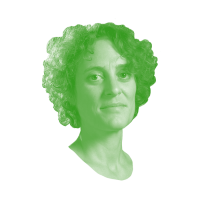
Soraya VasconcelosProject Full-time Researcher
Soraya Vasconcelos is a visual artist and researcher at ICNOVA. A graduate in painting, she also studied photography and philosophy and holds a PhD in Communication, Culture and Arts with the practice-based project Affect – Oscillograph of Sense. She is a lecturer in the photography course at Lusófona University and taught at the Polytechnic Institute of Tomar (2014-19). She participated in the research project Rethink – Alternative Narratives to Violent Extremism (2019). She has maintained a regular activity as an artist whose practice includes photography, drawing and installation. Recently she participated in the collective show Imagens com Vida Própria [Images with a Life of their Own], curated by Sandra Vieira Jürgens, Vila Franca de Xira Photography Biennale 2018, and the collective and interdisciplinary project Estação Vernadsky [Vernadsky Station] (Sines and Lisbon 2017-18), which she proposed and coordinated with Susana Gaudêncio.
Website
Website
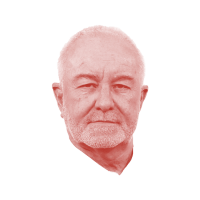
António Fernando CascaisResearcher in Visual Culture
António Fernando Cascais is a professor at the School of Social and Human Sciences of NOVA University of Lisbon and an integrated researcher at ICNOVA. He organized the books: Mediações da Ciência – Da Compreensão Pública da Ciência à Mediação dos Saberes – Um Reader [Mediations of Science – From Public Understanding of Science to the Mediation of Knowledge – A Reader] (ICNOVA, 2019), Olhares sobre a Cultura Visual da Medicina em Portugal [Views on the Visual Culture of Medicine in Portugal] (Unyleya, 2014), Indisciplinar a teoria [Undisciplining theory] (Fenda, 2004), A SIDA por um Fio [AIDS by a Thread] (Vega, 1997) and, in collaboration, O Vírus-cinema: Cinema Queer e VIH/sida [Cinema-virus: Queer Cinema and HIV / AIDS] (Lisbon, 2018), Queer Cinema and Culture. Queer Lisbon – Queer International Film Festival (Lisbon, 2014), Hospital Miguel Bombarda 1968 – Fotografias de José Fontes [Miguel Bombarda Hospital 1968 – Photographs by José Fontes] (Documenta, 2016), Lei, Segurança, Disciplina. Trinta anos depois de Vigiar e punir de Michel Foucault [Law, Security, Discipline. Thirty years after Discipline and Punish by Michel Foucault] (CFCUL, 2009), and nº 19 (1994), 33 (2004) and 38 (2007) of the Journal of Communication and Languages. Researcher responsible for the FCT Projects History of the Visual Culture of Medicine in Portugal and Models and Practices of Science Communication in Portugal.

Catarina MateusResearcher, Curator of the IICT and MUNHAC Photographic Collections
Catarina Mateus is a conservator and, through an FCT grant, is curator of the photography collections of the Museums of the University of Lisbon, in particular the IICT and MUHNAC collections. Master in Preventive Conservation from the University of Northumbria, she holds a degree in conservation and restoration from the Polytechnic Institute of Tomar and postgraduate studies in photography from IADE. She was part of the LUPA team (Luis Pavão, Lda) for 11 years, providing training and working as a conservative-restorer of photography in several collections: Directorate General of National Buildings and Monuments – IHRU; Image Center – Shrine of Fatima, Calouste Gulbenkian Foundation, among others. She works with the photography collection of the Tropical Scientific Research Institute (IICT) since 2005.
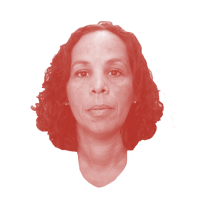
Élia RoldãoResearcher, Conserver-restorer of Photography
Élia Roldão is a conserver–restorer of photography. She is a PhD in Conservation Sciences, specializing in photography with the research project A Contribution for the Preservation of Cellulose Esters Black and White Negatives. She is currently Assistant Professor at the Department of Conservation and Restoration of the School of Science and Technology of Universidade NOVA University of Lisbon (DCR, FCT-NOVA). In 2010, she was an FCT fellow for the IC&DT [Scientific Research and Technological Development] project in History of Science: Meio Século de Ciência Colonial – Olhares Cruzados sobre o Arquivo e a Atividade Científica da Comissão de Cartografia (1883-1936) [Half a Century of Colonial Science – Crossing Views on the Archive and Scientific Activity of the Cartography Commission (1883-1936)] at the Arquivo Histórico Ultramarino. Most recently she participated in the projects: O Triunfo da Baquelite – Contributos para uma História dos Plásticos em Portugal [Baquelite’s Triumph – Contributions to a History of Plastic in Portugal]; Photographs: Perception and Changes – an Interdisciplinary Approach on Photography and its Reception; and Innovative Packaging Solutions for Storage and Conservation of 20th Century Cultural Heritage of Artefacts Based on Cellulose Derivatives – NEMOSINE.
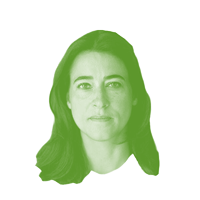
Filipa Lowndes VicenteResearcher in History of Photography
Filipa Lowndes Vicente is a researcher in history at the Institute of Social Sciences at University of Lisbon. She holds a PhD from Goldsmiths College, University of London, from which resulted the book Travels and Exhibitions: D. Pedro V in Nineteenth-Century Europe (Gótica, 2003) awarded the Victor de Sá prize in contemporary history (2004). Her research concentrates on the modes of knowledge production in the 19th and 20th centuries, the intersections between visual, material and written culture, and colonialism, as well as the history of women writers and artists. She published various books: Other Orientalisms – India between Florence and Bombay (1860-1900) (ICS, 2009/ Orient BlackSwan, 2012/ Florence University Press, 2012); Between Two Empires. British Travelers in Goa (1800-1940); A Arte sem História – Mulheres e Cultura Artística (sec. XVI-XX) [Art without History. Women and Artistic Culture (16th – 20th century)] (Athena, 2012); Aurélia de Sousa, Mulher Artista (Tinta da China, 2016). She coordinated the project Knowledge and Vision – Photography within the Portuguese colonial archive and museum (1850-1950).
Website
Website
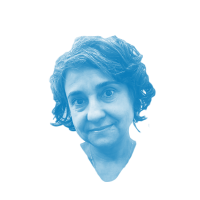
Helena EliasResearcher and Visual Artist
Helena Elias is Assistant Professor in Sculpture at the School of Fine Arts of the University of Lisbon (FBAUL). She holds a PhD in Public Art form the School of Fine Arts of the University of Barcelona, a Master of Arts degree from Grays School of Arts, UK (2000) and a degree in Sculpture from FBAUL (1999). Her doctoral project received the Ignacio de Lecea Prize, awarded by Generalital and Faculdad de Bellas Artes of U.Barcelona (2009). As an artist, teacher and researcher, she articulates teaching and art practice, showing her work and publishing several articles and book chapters. She was an FCT grantee for her post-doctoral artistic research in Sculpture at the School of Fine Arts, Lisbon. Received the observIST-UL Best Practice Award for her workshops and residency entitled What’s in a Line?, at the IST Civil Museum (2019). She coordinates the VICARTE Research Line in Arts and Sciences, where she develops the project Communities of Practice – Methodological Strategies for Collaborative Research between the Arts and Sciences.
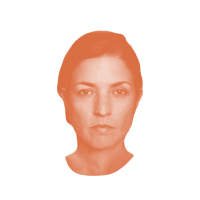
Lorena TravassosResearcher in Photography Studies
Lorena Travassos is a researcher at ICNOVA and a photographer. She participated in group exhibitions in Portugal, Brazil, Mexico and Chile; her latest participation being for the project Significações [Meanings], at the Sintra Arts Museum in 2018, with the work Nó [Knot]. She has a degree in journalism and a master’s degree in Communication from the Federal University of Paraíba, Brazil. She has a PhD in Communication Sciences from ICNOVA, having researched the representation of Brazilians in Portuguese contemporary photography. She is also an invited lecturer at Lusófona University, teaching History of Photography.

Maria do Carmo PiçarraResearcher in Colonial Film Studies
Maria do Carmo Piçarra is a researcher at ICNOVA and a professor at Autonoma University of Lisbon. She was assistant chair of the Institute of Cinema, Audiovisual and Multimedia (1998-1999), founder and co-editor (2012-2018) of ANIKI – Revista Portuguesa da Imagem em Movimento [Portuguese Journal of Image in Motion]; she is a film critic and programmer. She was an FCT fellow (PhD and postdoctoral), a grantee of the Gulbenkian Fine Arts Service and of the Fundação Oriente (2018-20). She taught at ISCTE-IUL (2012-2016) and at the Higher School of Education – Polytechnic Institute of Setúbal (2014). She has published, among other titles and articles: Azuis Ultramarinos – Propaganda Colonial e Censura no Cinema do Estado Novo [Ultramarine Blues – Colonial Propaganda and Censorship in the New State Cinema] (Almedina, 2015); Salazar vai ao cinema I e II [Salazar goes to the movies I and II] (Minerva, 2006 and 2011); she coordinated, with Jorge António, the trilogy Angola – O Nascimento de uma Nação [Angola – The Birth of a Nation] (Guerra & Paz, 2013, 2014, 2015) and, with Teresa Castro, (Re)Imagining African Independence. Film, Visual Arts and the Fall of the Portuguese Empire (Peter Lang, 2017).
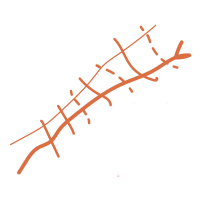
Maria da Conceição CasanovaResearcher, Conserver-restorer of Paper-based Artworks
Maria da Conceição Casanova has extensive experience in leading conservation and restoration teams, and supervising research projects and MS and PhD students in the field of conservation and restoration of books and paper-based artworks. She has been awarded various prizes and has numerous publications on the subject. She holds a PhD in Conservation and Restoration – Theory, History and Techniques from the School of Science and Technology, NOVA University of Lisbon, a post-graduate degree in Conservation Studies from Camberwell College of Arts, London University and an Art History Degree from the Humanities College, University of Porto. She has been a consultant for institutions such as Calouste Gulbenkian Foundation and Direcção Geral dos Monumentos Nacionais, director of the Conservation & Restoration Departments of Biblioteca Nacional de Lisboa (1989-1998), Arquivos Nacionais / Torre do Tombo (1999- 2004) and the Instituto de Investigação Científica Tropical (2005-2015); since 2012, she is a researcher in this latter institution, and in the Museums of the University of Lisbon. Currently, she is assistant professor and vice-president of the Ph.D. program in the Conservation and Restoration of Cultural Heritage, as well as member of the Executive Board of the Conservation & Restoration Department of the School of Science and Technology of NOVA University of Lisbon.

Maria Teresa CruzResearcher in Digital Humanities
Maria Teresa Cruz is professor at the Communication Sciences Department of the School of Social Sciences and Humanities of NOVA University of Lisbon in the fields of Image Theory, Media Aesthetics and Contemporary Art and is a member of the Research Group “Culture, Media and Arts” at ICNOVA – Communication Institute of UNL. She is also founder of the journal Interact – Art, Culture and Technology, which she directed from 2000 to 2006. Research fields: post-media aesthetics; cultural heritage; and participation culture. Project Coordination: African-European Narratives (Europe for Citizens, 2018-19); Communication Design – Interpretation Center Gonçalo Ribeiro Telles, Gulbenkian Foundation, Lisbon, 2013; Museology Communication Design, COA Museum of Paleolithic Art (World Heritage, Portugal 2008-2010). Publications: CRUZ, M Teresa (2019) “Art Curation and Critique in the Age of Digital Humanities” in International Journal of Performance Arts and Digital Media. 15(2), July; CRUZ, M. Teresa (org.) Media Theory and Cultural Technologies, Cambridge Scholars, 2017); CRUZ, M. Teresa (org.) Novos Media – Novas Práticas [New Media – New practices] (Vega, 2011).

Paula Cristina Santos(Participation ended 30 Sept. 2020) Researcher and Geographer at MUNHAC
Paula Cristina Santos is a researcher at the National Museum of Science and Natural History (MUHNAC). She has a degree in Geographic Engineering from the School of Sciences of the University of Lisbon and has fulfilled Pedagogical Aptitude and Scientific Capacity Tests and public exams equivalent to the doctorate in the area of geodesy. Her professional career took place mainly at the Institute for Tropical Scientific Research (IICT) where she participated in several projects in the field of geodesy, cooperative actions with the PALOP and, in recent years, activities for the dissemination of geodetic heritage. As a member of MUHNAC since 2016, she is the curator of the Lisbon Astronomical Observatory, the Border Archives and the IICT and MUHNAC geodesy and astronomy collections.

Sílvio Marcus de Souza CorreaVisiting researcher in Colonial Visual History
Sílvio Marcus de Souza Correa is professor of the Postgraduate Program of Global History and the Interdisciplinary Postgraduate Program in Human Sciences of the Universidade Federal de Santa Catarina (UFSC). PhD in Sociology (Westfälische Wilhelms-Universität Münster) and Researcher (Research Productivity Fellowship) of Brazilian National Council for Scientific and Technological Development (CNPq). Among many international institutions, Correa has been visiting researcher at the Paris Institute for Advanced Study and the Interuniversity Centre for the History of Science and Technology (CIUHCT) of the New University of Lisbon. Among recent research projects are: “Images of Africa”, with a grant from the National Council for Scientific and Technological Development (CNPq n. 312449 / 2017-8) and “Images of sick and anomalous bodies in colonial Africa”, with support from Coordenação de Aperfeiçoamento de Pessoal de Nível Superior (CAPES n.8881.171249 / 2018-01). Scientific interests include the history of the colonial empires (19th and 20th centuries), with publications in the area of visual history of colonialism in Africa, with emphasis on the connections between sciences and colonial empires.
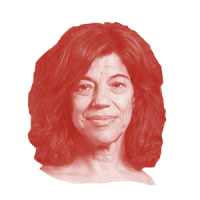
Susana Sousa DiasFilmmaker and Researcher in Cinema
Susana Sousa Dias is a filmmaker and Professor of Multimedia Art at the College of Fine Arts in Lisbon. She studied Cinema, Fine Arts, Aesthetics and Philosophy of Art, completing her PhD in Fine Arts, with a specialty in Audiovisuals (2014, FBAUL). Over the years, she has had complementary training: in 2002 she realized an “Atelier Documentaire et Archives” in Paris for eight months, at La Fémis, École Nationale Supérieure des Métiers de l’ Image et du Son; she also attended Music courses at the National Conservatory and Piano at the Hot-Club de Portugal. Her eclectic background makes her work complex and her films have been shown at various festivals around the world. She received several awards, such as: “Merit Award” at Taiwan Documentary Film Festival (2006), “Atlanta Films Award” at Doclisboa (2006), “Grand Prix” at Cinéma du Réel (2010); “FIPRESCI Award” at DOK Leipzing (2010); “Grand Prize” at the Mar del Plata International Independent Film Festival, Argentina. She is the author of the documentaries “Natureza Morta” (2005), “48” (2010) and “Luz Obscura” (2017).

Teresa CastroResearcher in Photography and Film Studies
Teresa Castro is Associate Professor in Film Studies at Université Sorbonne Nouvelle – Paris 3. She was a post-doctoral researcher at the Musée du Quai Branly, Paris (2010-2011) and at the Max Planck Institute for the History of Science, Berlin (2011). Part of her research has focused on photography and film in colonial situations and she collaborated in the curating of the film cycle Liberation Movements in Mozambique, Angola and Guinea-Bissau (1961-1974), organized by the festival Doclisboa in 2011. Her publications on these topics include articles and book chapters on Portuguese colonial photography, scientific and ethnographic films made in Angola or the way in which Portuguese contemporary artists have explored colonial archive images. She published La Pensée Cartographique des Images – Cinéma et Culture Visuelle (Aléas, 2011) and co-edited, with Maria do Carmo Piçarra, (Re)Imagining African Independence – Film, Visual Arts and the Fall of the Portuguese Empire (Peter Lang, 2017).

Victor FloresResearcher in History of Photography
Victor Flores is Associate Professor at Lusófona University and a researcher of the cultural history of visual media at the Research Center of Applied Communication, Culture and New Technologies (CICANT). He is the founding organizer of the International Conference on Stereo & Immersive Media: Photography and Sound Research and the principal editor of the International Journal on Stereo & Immersive Media. He is currently the principal investigator of the research project Carlos Relvas Full 3D – The Stereo Catalogue and is implementing CICANT’s Early Visual Media Lab. He lectures courses related to the history of photography and visual culture. Previously, he coordinated the research project Stereo Visual Culture – The Visual Culture of Portuguese Stereoscopic Photography (2012-15) and European Stereo Masters – Carlos Relvas, (2017). He was also editor for the book The Third Image – Stereoscopic Photography in Portugal (Documenta, 2019) and since 2015 he has curated several exhibitions dedicated to 19th Century photography, such as Carlos Relvas (1838-1894) – Rediscovered Views of Portugal at the National Museum of Contemporary Art, in Lisbon (2018-19).
Project Consultants
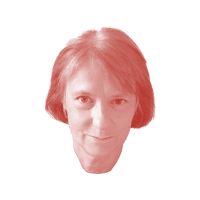
Elizabeth EdwardsResearcher in Visual Anthropology
Elizabeth Edwards is a visual and historical anthropologist and is currently Andrew W. Mellon Professor at the Victoria and Albert Museum Research Institute, London. She is Professor Emerita of Photographic History at De Montfort University, Leicester, where she was Director of the Photographic History Research Centre from 2011- 2016. She is also Honorary Professor in the Department of Anthropology University College London. Until 2005 she was Curator of Photographs at Pitt Rivers Museum and lecturer in visual anthropology at ISCA, University of Oxford, where she is a Curator Emerita and Research Affiliate. Specialising in the social and material practices of photography, she has worked extensively on the relationships between photography, anthropology and history for over 30 years.
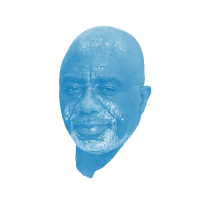
Joseph TondaResearcher in Anthropology and Sociology
Joseph Tonda is Professor of sociology and anthropology at Omar Bongo University in Libreville, Gabon. He is the author of inumerous articles and publications, having published various books, including Afrodystopie – La vie dans le rêve d’Autrui [Karthala, 2021]; L’Impérialisme Postcolonial – Critique de la Société des Éblouissements [Karthala 2015]; The Modern Sovereign: The Body of Power in Central Africa (Congo, Gabon) [Karthala 2005 / Seagull Books 2020], La Guérison Divine en Afrique Centrale (Congo, Gabon) [Karthala 2003]. He is also a literary writer and has published Tuée-tuée Mon Amour (LA DOXA éditions, Paris, 2017) e Chiens de Foudre (ODEM, Libreville 2013, esgotado).

Richard CleminsonResearcher in Iberian Studies
Richard Cleminson is Professor of Hispanic Studies at the University of Leeds, United Kingdom. He has published on the history of sexuality in Iberia, concentrating on the history of eugenics, homosexuality and themes related to the labour movement. His most recent publications include Catholicism, race and empire: Eugenics in Portugal, 1900-1950 (Budapest/New York, 2014) and Anarchism and eugenics: An unlikely convergence (Manchester, 2019). Currently, he is working on a history of anticolonialism in Portugal between 1900 and 1940 and has published on this topic: Anarchism and anticolonialism in Portugal (1919-1926): Mário Domingues, A Batalha and black internationalism, in Journal of Iberian and Latin American Studies, 25(3), 2019, pp. 441-465.
Website
Website
Grantees and interns

Bruno Miguel dos SantosULHT intern in Photography
Bruno Miguel dos Santos graduated in Computer Engineering from the Engineering Institute of Coimbra and from the Universidade Metodista de Angola (2013), he worked at the company Critical Software (Coimbra), having returned to Angola in 2012, to Ministério dos Petróleos de Angola; he worked in this field until 2019. In parallel, he developed his activity as a photographer, passing through several magazines and projects and creating his own photography company: Só no Click, having now 10 years of experience in wedding and product photography and photojournalism. He is currently a finalist for the Degree in Photography at the Lusófona University of Humanities and Technologies. He carries out a curricular internship at the Museum of Natural History and Science, for which he photographs materials from various collections of the Museum, including albums and photographic material for the Photo Impulse project.

Joana Sobral FCT-NOVA grantee in Conservation and Restoration
Joana Sobral has a degree in Conservation and Restoration from FCT-NOVA (2019). She is an FCT-NOVA intern in the Photo Impulse project working as a photography conservator-restorer, with a grant from Foundation for Science and Technology. Her object of study comprises the photographic collections of the Geographic, Geodesic and Anthropological Missions of IICT/ULisboa.
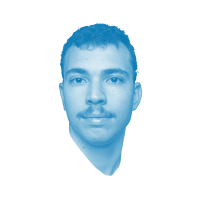
José FadollaULHT intern in Photography
José Fadolla attended the Philosophy course at UNED (Mérida, 2017-18), having opted, in 2019, for Photography at the Lusófona University of Humanities and Technologies (Lisbon). As a finalist, he carries out a curricular internship at the Museum of Natural History and Science, photographing materials from various collections of the Museum and involved in the digitization of albums and photographic material for the Photo Impulse project.
PHD Candidates

José Pedro BaptistaPhD Candidate in Communication Sciences
José Pedro Baptista began his studies in Chemistry and Biology at the College of Science of the University of Lisbon, also dedicating himself to theater at C.E.M – Centro em Movimento. He graduated in London from the London College of Communication, where he addressed The Problems of Adapting a Book for Film, comparing 3 film adaptations of Macbeth. He collaborated with the Estoril Film Festival collaborating in the festival programming and coordinating the catalogue. He has a Master’s Degree in Communication Sciences (2010, FCSH–UNL), with the thesis O tédio enquanto configuração contemporânea [Boredom as a contemporary configuration]. He is a grantee of FCT since 2019, and is currently developing his doctoral project, O obsceno: a representação de um lugar impossível [The obscene: the representation of an impossible place]. He is a self-taught piano player and skateboarder.

Maria KowalskiPhD Candidate in Communication and Arts
Maria Kowalski has a degree in Art and Communication – Photography, at ESAP and is a PhD candidate in Communication Sciences, specializing in Communication and Arts, at NOVA – FCSH, belonging to ICNOVA /FCHS. Since 2003, she’s been working as a freelance photographer, graphic designer and photography trainer. She has been holding photography exhibitions, individual and collective, both nationally and internationally, including the artistic residency and solo exhibition Barthes’ Punctum and the family album of Narciso Costa, Galeria de Arte Banco de Portugal, Leiria (2019) and the collective exhibition From Here to There, Kloster Bentlage Museum, Rheine, Germany (2017). Since 2008, she teaches at ESECS – IPL, in the fields of photography, multimedia, cultural communication, creative processes, aesthetics and digital image, and community intervention. In 2009, she began a series of participatory photography projects as a form of social and humanitarian intervention in Cape Verde, Guinea-Bissau and Mozambique.
Website
Website
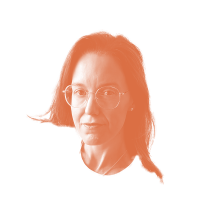
Mariana Gomes da CostaPhD Candidate in Communication and New Media Technologies
Mariana Gomes da Costa is a researcher at ICNOVA. She has a degree in Social Communication from the Catholic University of Portugal (2005) and in Philosophy from the College of Letters, University of Lisbon (2010), she concluded her Master’s degree in 2018 also at the College of Letters on the work of Michel Foucault, with special focus on the work The Birth of the Clinic: An Archeology of Medical Perception. In recent years, she has reconciled freelance work in the press, as well as proofreading and translation with collaborations with the research centers CEFi-UCP and CLEPUL-FLUL, for which she has realized tasks of the fixing of old texts and institutional communication. She is currently a PhD fellow of the Foundation for Science and Technology, working on a project that spans the fields of Communication Sciences and Philosophy to study the influence of photographic and radiographic devices on the transformation of medical perception.

Philipp TeuchmannPhD Candidate in Contemporary Culture and New Technologies
Philipp Teuchmannis a PhD candidate in Communication Sciences at NOVA University of Lisbon, FCSH. In 2021 he concluded at the same institution and in the same field of studies his master’s degree with the dissertation Da Operatividade Gráfica: o Diagramático em Três Exemplos da Arte Contemporânea. There he seeks to think about the diagrammatic regime of comunication and the multiple concretizations of the diagram in the context of various contemporary artistic practices. He currently integrates two projects: African-European Narratives and Photo-Impulse. In both he works on a post-colonial critique of the western image and its scopic function by focusing on the role played by diagrammatics and the photographic image within the larger framework of colonial epistemology and science. The African-European Narratives project also entails an investigation on the ways through which the digital condition may contribute to the (de)construction of the aforementioned scopic function. Philipp’s academic interests are media theory and media aesthetics, semiotics, contemporary art and cultural studies.

Rita Cássia SilvaPhD Candidate in Communication and Arts
Rita Cássia Silvais a PhD candidate in Communication Sciences at NOVA University of Lisbon, FCSH. In 2017 she completed her degree in Anthropology at ISCTE – University of Lisbon, with a final paper for the course Professional Practices in Anthropology, taught by Professor Francisco Oneto Nunes, entitled “Once Upon a Time in My Childhood – Changes in the Perception of Childhood and the Education of the New Generation”, in which she sought to reflect on the social panorama of education in present day Portugal, considering education whose heritage, marked by historical facts from the 15th century on, contributed to capitalist development and to the dehumanization of the other, the non-European. She integrates the Photo Impulse Project, focusing on the potential use of colonial photographic and filmic materials in artistic processes reverberating decolonial practice in the context of research based artistic creation. Her areas of interest lie in research-based artistic creation, disciplinary intersections, auto ethnography, gender, communication, decolonial thought and visual culture.
Visiting Researchers

Alzira Tude de SáVisiting researcher in Photography Studies
Alzira Tude de Sá holds a PhD in Information Science from the Federal University of Bahia-Ufba (2016), Master in Languages Study: Reading, Literature and Identity from State University of Bahia-Uneb (2006). Graduated in Library and Documentation (1970) and Journalism (1971) from UFba. She is a professor of the Archivology Course at the Institute of Information Science at the Ufba, working in the areas of Information Science, Memory and Information, Information Representation and Mediation, currently developing theoretical and epistemological studies on Photography. Her master’s dissertation, defended in 2006, analyzes the literary criticism about Gabriela, harpsichord and cinnamon, by writer Jorge Amado, and since 2016, as a doctor, she has turned to the study of the Amadian sociocultural universe, through the reading and analysis of images of the writer’s house, which has earned him the presentation and publication of works in national and foreign events and periodicals. The thesis defended was published by the Federal University of Bahia-Brazil Publishing House, entitled “Photographic mediation reveals the place of intimacy: Jorge Amado’s house.”

Cecilia JärdemarVisual Artist
Cecilia Järdemar is a Swedish/Portuguese visual artist and researcher. She holds a PhD in Fine Art from the Royal College of Art in the UK, and is now a lecturer at Konstfack University in Stockholm. Her photographic, performance and video works have been shown in Sweden, Democratic Republic of the Congo, Mexico, Italy, Greece, Switzerland, Russia, the UK and Germany, and her writings have been published by the Whitechapel Gallery and Riding House press, among others. She ran the art project Les Archives Suédoises (2015-2019) together with artists Anna Ekman and Freddy Tsimba, which was exhibited at Museé D’Art Contemporain in Kinshasa, Kalmar Konstmuseum, Gävle Konsthall, The Centre for Photography in Stockholm and Jönköpings Länsmuseum. A monograph, The Opening, was published by Sailor Press in 2019. She is the principal investigator of the artistic research project Reframing the encounter – From repressed colonial pile to a collaborative decolonial counter-archive (2020-2023).

Madalena MirandaFilmaker and researcher
Madalena Miranda is a researcher at ICNOVA at the Culture, Mediation and the Arts cluster and is an invited professor at Nova University of Lisbon (FCSH). She holds a PhD in Digital Media, Audiovisual and Interactive Content Creation, from NOVA University, a CoLab Program with the University of Porto and the University of Texas, Austin. Her doctoral practice-based research, “Protest Images, Collective Portraits” (2020) includes an interactive platform prototype to explore participatory models of archival and montage cinema from online protest images of social movements of the digital age. She had a doctoral grant from FCT. She is involved with different research projects, with a highlight to AfricanEuropeanNarratives, a Europe for Citizens funded project, developing participatory media literacy workshops and with a documentary film as output. she also directed the documentary – “Class Diary” (2009), having studied Documentary Direction with Les Ateliers Varan (2004), with a scholarship of the Gulbenkian Foundation Creativity Program.
